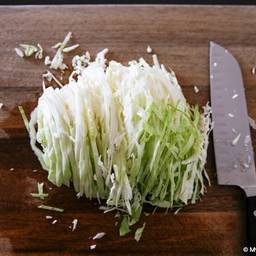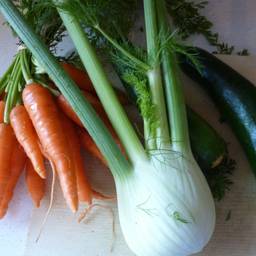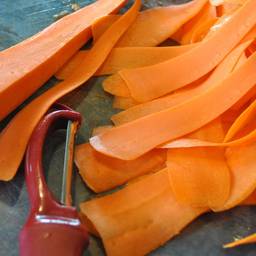I’ve had a number of clients express concerns regarding food and the potential transfer of Covid-19. While this whole scenario is very new to all of us and therefore lacking in evidence specific to Covid-19, I’ve put together comments on the subject from several trusted and professional sources.
Coronaviruses are most commonly passed between animals and people and from person-to-person contact. The source of the Covid-19 virus is believed to be animals, but the exact source continues to be investigated in China. Covid-19 is a respiratory illness. The virus is commonly transmitted through direct mucous membrane contact by infectious droplets, e.g. breathing in airborne virus from the sneeze of someone who is infected, or through touching a contaminated surface and then touching your mouth, nose or eyes. It is not known to be transmitted by exposure to food or food packaging. Experience with recent acute respiratory diseases such as Severe Acute Respiratory Syndrome (SARS) and Middle East Respiratory Syndrome (MERS) suggests that transmission through food did not occur. To date, there have not been any reports of transmission of Covid-19 virus through food.
Coronaviruses cannot grow in food – they need a host (animal or human) to grow in. Concerns have been expressed about the potential for these viruses to persist on raw foods of animal origin. As a general rule, the consumption of raw or undercooked animal products should be avoided. Raw meat, raw milk or raw animal organs should be handled with care to avoid cross-contamination. Coronaviruses are very stable in a frozen state according to studies of other coronaviruses, which have shown survival for up to two years at -20°C. Studies conducted on SARS and MERS indicate that these viruses can persist on different surfaces for up to a few days depending on a combination of factors such as temperature, humidity and light. For example, at refrigeration temperature (4°C), MERS can remain viable for up to 72 hours. Current evidence on other coronavirus strains shows that while coronaviruses appear to be stable at low and freezing temperatures for a certain period, food hygiene and good food safety practices can prevent their transmission through food. Coronaviruses are destroyed by heat. Cooking for at least 30 minutes at 70°C kills SARS, which is a similar coronavirus. This re enforces the recommendation to avoid raw animal products.
The risk of catching the virus that causes Covid-19 from a package that has been moved, travelled and exposed to different conditions and temperatures is very low. The WHO advises that the likelihood of an infected person contaminating commercial goods is low. While food packaging is not known to present a specific risk, efforts should be made to ensure it is cleaned and handled in line with the usual food safety practices i.e. anyone handling food should wash their hands often with soap and water for at least 20 seconds. This should be done as a matter of routine before and after handling food and especially after being in a public place, blowing their nose, coughing or sneezing.
Infectious disease expert Dr Siouxsie Wiles said the chances of the virus being spread through groceries was very low, but not impossible. She comments “What people are thinking about more, is if somebody sneezes on their hand and picks something up, they’re thinking what’s the chance? The chance is very, very, very small, but not impossible.” We are relying on food handlers both in the home and in food businesses to follow standard, good personal hygiene practices that reduce the risk of transmission of most foodborne illnesses.
The Food Safety Information Council of Australia’s advice:
- At stores, socially distance yourself to protect yourself and others
- Don’t put unpackaged fresh fruit and veg directly into your trolley
- Don’t touch items and put them back on the shelf
- Wash your hands immediately when you return home from shopping and again after putting away groceries
- Home deliveries reduce contact with others, but take precautions and wash your hands after handling the delivery
- Wash vegetables under running water before you eat them. (Don’t use hand sanitiser or soap to clean produce)
In summary, I know this is a message we are regularly hearing but I would have to emphasis the importance of hand washing. Wash often. Use soap. 20 seconds. Then dry. This kills the virus by bursting its protective bubble. Don’t touch your eyes, nose or mouth if your hands are not clean. These simple measures prevent the transmission of coronaviruses.
References:
World Health Organisation
Food Standards Australia New Zealand
The Food Safety Information Council of Australia
NZ Food safety – Ministry of Primary Industries, NZ.
Guidance for food businesses on Covid-19 GOV.UK
Dr Siouxsie Wiles, Associate Professor and head of the Bioluminescent Superbugs Lab at the University of Auckland.



